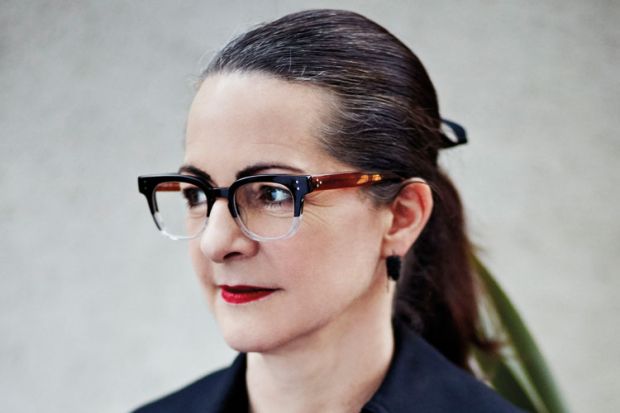Frances Corner is head of the London College of Fashion, University of the Arts London, and pro vice-chancellor of UAL. A strong advocate of widening participation, she was honoured in April with a Women: Inspiration & Enterprise award for services to education.
Where were you born?
I was born in Aden in Yemen.
How has this shaped you?
As my parents worked abroad, I spent much of my early childhood overseas. This really shaped my view of the world around me. Experiencing many different cultures gave me a global perspective, which has influenced the way I think about education.
What is the significance of the Women: Inspiration & Enterprise award?
I hope that by winning this award it will shine a light on projects I am really passionate about and my ethos of “better lives”, which has become one of the cornerstones of my headship here at the London College of Fashion. It is a wide agenda that I feel encapsulates how we need to work as educators; it is a dialogue between staff, students and the wider community to develop an understanding and definition of what sustainability and diversity mean to us. Examples include our work embedding fashion education in our prison service and working with various schools and charities in Hackney, including the Threads project and Art Against Knives, to widen participation in education and the fashion industry.
What is the future of fashion education in the sector?
The fashion industry is one of the most dynamic in the world, which is why as a college we need to be looking five to ten years down the line – anticipating the needs of the rapidly changing business and fashion landscape to make sure that we continue to provide the industry with some of the world’s most creative and entrepreneurial graduates. Fashion is a serious business, worth £21 billion to the UK economy.
Are quotas in higher education senior management an appropriate way to address low female representation at higher levels?
We need to work out what will create real momentum. I admire the 30% Club [launched in the UK in 2010 with the aim of achieving 30 per cent female representation on the boards of FTSE 100 companies by 2015], which has achieved a lot by insisting that progress towards boardroom diversity is business-led rather than imposed.
Have you had a eureka moment?
I don’t think you could quite describe it as a eureka moment, but when I became head of the college, I knew I wanted to change the face of fashion education. I wanted to elevate it from being seen as “just” vocational training. I knew fashion in all its forms was so much more than that. I wanted to highlight its importance within the creative industries and as an art form in its own right. I know first-hand how fashion can be used to transform people’s lives. Whether it’s through retraining female offenders in machine skills or collaborating with communities in Ethiopia and Mongolia on design projects, fashion has an incredible way of communicating to people.
Tell us about someone you’ve always admired.
I have great admiration for Frida Kahlo. There is an intense and searing perception to her paintings that I feel other artists fail to achieve. She had a very strong sense of self and personal style – how she chose to dress reflected how fashion and clothing connect us not only to our inner selves but also to the world around us. She is a constant source of inspiration and encouraged me in my lifelong commitment to feminism.
What are the best and worst things about your job?
This might sound trite, but the best thing about my job is the extraordinary staff and students that I have the privilege to work with on a day-to-day basis. The LCF really is an exciting place to work. Not only do we work with some of the biggest names in industry, but we also run some of the most innovative courses in the world. The worst part of the job is being at the mercy of external forces within the higher education sector – for example, the changing funding structure and rising fees.
If you were higher education minister for the day, what policy would you implement?
I would prioritise providing additional financial support for postgraduate study and research – two areas that we are raising money for through our scholarships and bursaries fundraising campaign, Fashion Matters. We need graduates to have the freedom to embark on master’s degrees and PhDs without worrying about the financial implications.
后记
Article originally published as: HE & me (4 June 2015)
